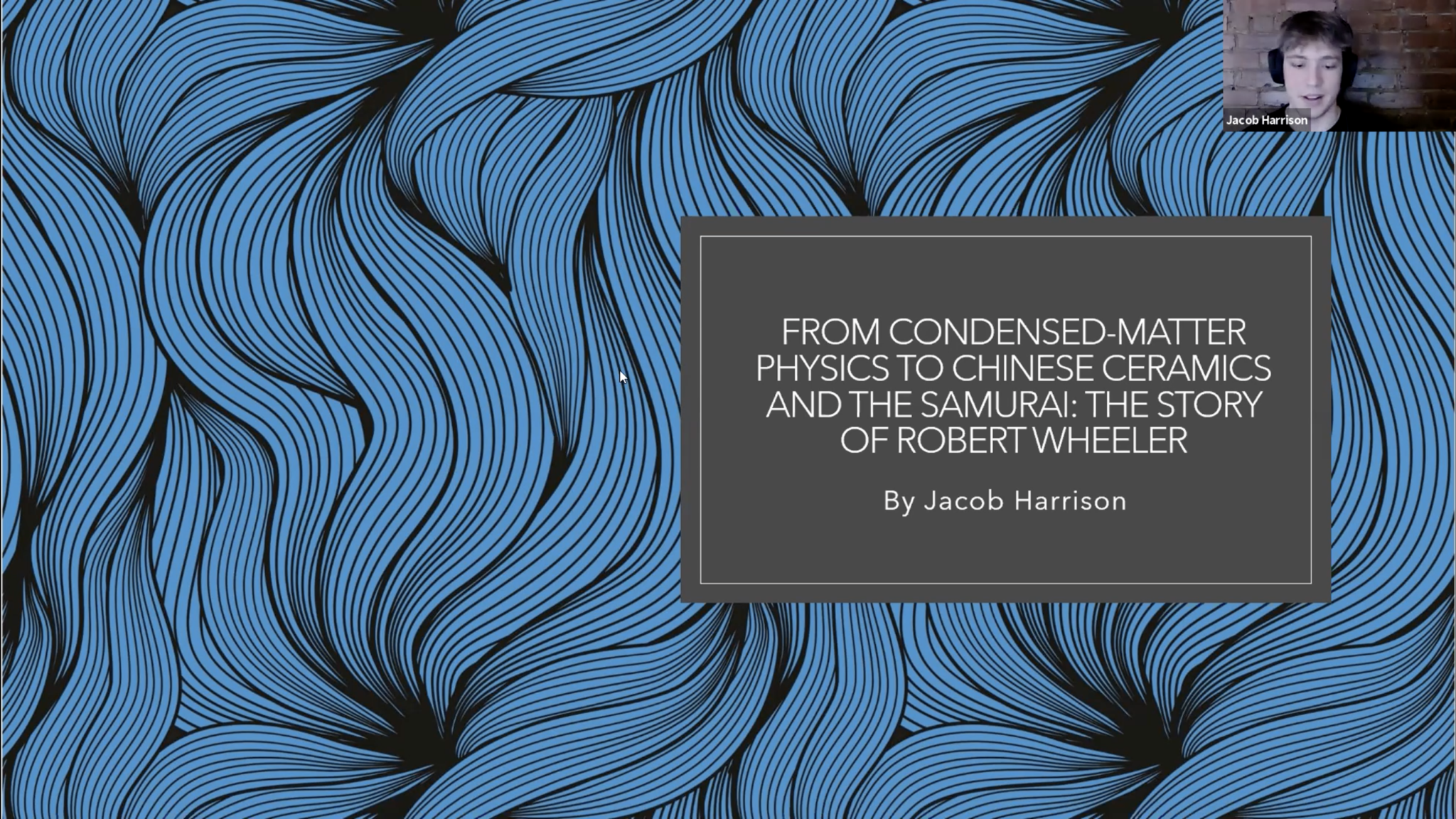First-year seminar profiles emeritus faculty
Professor Daniel Prober’s class interviewed and presented on the lives and work of Yale’s emeritus faculty as a final project for the class.

Samuel Turner, Contributing Photographer
On April 27, students in applied physics professor Daniel Prober’s first-year seminar, “Science of Modern Technology and Public Policy,” presented on the lives of emeritus faculty, a title bestowed upon qualified retired faculty, in a unique final project.
The seminar examines the science behind modern technological advancements and their impact on society. Prober, having taught this class for 13 years, came up with the final project idea this year after talking with Penelope Laurans, who once served as the head of Jonathan Edwards College and now serves as a senior advisor to the University. For this project, the course’s nine students each chose a Yale professor emeritus in a STEM area and interviewed them about their early years and career, as well as personal progression. Students were allowed to use up to 10 slides for their eight minute presentations, fielding two additional minutes of questions per talk. In attendance were many of the emeritus faculty involved in the project.
“This project was in the spirit of primary school students interviewing older family members, and I was stimulated by reading autobiographies and retirement tributes that Pennie [Laurans] had written,” Prober said. “In fact, two of the people with their autobiographies were very wonderful mentors of mine, professors [Werner] Wolf and [Robert] Wheeler.”
For inspiration, Prober provided the students access to the Henry Koerner Center for Emeritus Faculty’s volumes titled Intellectual Trajectories, which contain faculty autobiographies, and published retirement tributes. Retired faculty are invited to the center to present their biographies orally, and then turn the recorded transcript into an essay of 10 to 12 pages. The center has published four of these volumes and is working on a fifth.
Robert Wheeler, whose story is published in one of the volumes and who serves as a professor emeritus of engineering and applied physics and physics and a faculty associate at the Yale Peabody Museum of Natural History, was interviewed by Jacob Harrison ’24.
“My experience with [Wheeler] was really interesting because he had a dramatic shift from studying low temperature physics to curating an art exhibit about samurai and culture of Japan’s great peace,” Harrison, who spoke with Wheeler for nearly an hour, said. “It was interesting learning about the vast amount of accomplishments and experiences these Yale faculty have done in their lives.”
Harrison also gained further appreciation for the “opportunities that come with getting an education here.” Wheeler, for example, has since studied Chinese and Japanese art and curated an exhibit at the Peabody Museum on “Samurai and the Culture of Japan’s Great Peace.”
“It showed me that I should ask more questions and be more curious about the backgrounds of a lot of experienced and retired Yale faculty,” Harrison said.
Wheeler, who enjoyed meeting with Harrison, generally supported the aims of the project.
“What’s being exposed in this project is how emeritus faculty feel about life and interacting with students — that we were at Yale because we enjoyed what we were doing, and teaching undergraduates was a part of it,” Wheeler said. “I had a number of undergrads work with me and have followed some of them since, and I myself have had an unusual experience at the university since.”
Wheeler discussed the broad diversity of interests that emeritus faculty have. Some continue to teach at Yale College, others stay active in research projects and yet others go to another institution — but almost all are eager to mentor Yale undergraduates in some capacity.
The only two women in the class — Esha Bhattacharya ’24 and Vivian Weng ’24 — found retired female faculty, and one student, Wei Bao ’24, interviewed Gary Haller, the current director of the Koerner Center and research professor of chemical and environmental engineering.
Haller, who was the head of Jonathan Edwards until 2009, now holds a visiting professorship at the Technical University at Munich while still advising first years and sophomores.
“I came to Yale in 1967 at a time when Yale was still all-male and after growing up on a farm in Nebraska and going to a one-room school,” Haller said. “I went to a local college and am very fortunate for the fact that I only ever had one interview for a job.”
Haller, who taught at Yale for 48 years and retired in 2015, said that his passions have “drifted off into other interests that [he] had along the way.”
Some of those interests are art and theater — Haller spends weekends at the ballet and opera when he can.
To capture these and other interesting connections, Prober hopes to implement the final project in future iterations of the course and incorporate a higher level of diversity of emeritus faculty. One of the interviewees, Diane Komp, professor emerita of pediatrics, recommended that the class’ next iteration include faculty who were World War II refugees from Nazi Germany, according to Prober.
“I’m certainly going to do it in future years, and I acknowledge Penny’s influence as we shared an interest in retirement stories,” Prober said. “Every one of these professors has made major contributions to Yale, and many remain plugged into the community.”
Prober serves as the director of undergraduate studies for the Department of Applied Physics.
Correction, May 6: An earlier version of this story said that Laurans works at the Koerner Center. In fact, Laurans works as a senior advisor to the University. The story has been updated.







